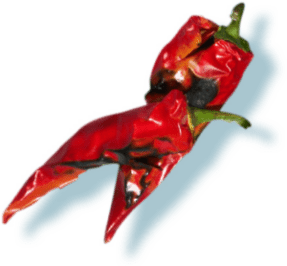It’s no secret that the restaurant industry has faced wave after wave of supply chain disruption over the last several years. But while many brands are still struggling to stabilize, QDOBA has quietly built one of the most resilient and cost-effective supply chains in the category, driving system-wide consistency, operator confidence, and even achieving the lowest food and paper costs in brand history.
We sat down with Paul Sinowitz, QDOBA’s Chief Supply Chain Officer, to unpack the “how.” With more than 35 years of supply chain leadership experience at brands like KFC, Sonic, Denny’s, MGM Resorts, and Caesars Entertainment, Paul brings deep industry insight and a refreshingly practical perspective to a topic that’s often anything but glamorous. Oh, and did we mention he’s also a sommelier?
Here’s a behind-the-scenes look at what makes QDOBA’s approach stand out, and why operators and suppliers alike consider the brand a best-in-class partner.
Q: What do you believe sets QDOBA apart from others when it comes to navigating supply chain disruptions?
Paul: It all comes down to relationships. During COVID, when suppliers had to pick and choose who to support due to limited labor and production, we were already positioned as a preferred customer. Why? Because we take a balanced approach. We understand that our suppliers need to be successful too. We offered relief early, pushed for fair pricing when they needed it, and didn’t squeeze them when the market shifted. That consistency and empathy go a long way.
Q: We’ve heard that QDOBA locked in chicken supply through 2027. How did that come together?
Paul: That kind of long-term planning isn’t typical right now, but it speaks to how we operate. We watch the market closely and forecast risk aggressively. We took a position on chicken through June 2027 because it allowed us to protect the system from volatility and offer cost certainty to our restaurants. Not only is that incredibly rare in today’s market, but it also gives us a competitive advantage in terms of stability and predictability.
Q: What makes QDOBA easy for suppliers to work with?
Paul: We don’t just demand. They tell us what’s hard, and we fix it. For example, a spice used in one of our marinades was too viscous and slowed down their production. So we reformulated it to run more efficiently without compromising flavor. In another case, we found out a preservative in our ground beef spice was causing a hiccup that we didn’t even know was there. We removed it immediately. Our goal is to be the easiest customer they have.
Q: How does QDOBA ensure consistent supply even as labor, freight, and ingredient challenges continue?
Paul: We use a multi-supplier, multi-plant model with both domestic and offshore sources. That built-in redundancy allows us to adapt quickly when issues arise. Sure, sometimes we have to truck product from California to Pennsylvania, but we have the flexibility to make it work. It’s a model that requires more planning up front, but it pays off when others are scrambling.
Q: Is there a difference in pricing between QDOBA corporate and franchised locations?
Paul: No. We operate as one system. Everyone pays the same base cost, outside of freight, and we’re fully transparent about what we’re locking in and why. It creates trust across the board, which is critical.
Q: How does your team collaborate internally when developing new menu items?
Paul: Supply chain, culinary, operations, and food safety all work together from day one. Whether the idea comes from our chefs or the supply side, we move as a team. No product goes out unless we’ve pressure-tested it from every angle including flavor, manufacturability, food safety, and system rollout.
Q: As QDOBA expands internationally, how does that impact your supply chain planning?
Paul: Initially, we export products from the U.S. and ensure they meet each country’s regulatory standards. Once we hit about 20 units in a market, we start exploring local manufacturing. Every country has different rules around ingredients, antibiotics, and preservatives, so our quality assurance and sourcing teams work closely to ensure we’re in compliance while maintaining consistency.
Q: What’s something people might not realize about QDOBA’s supply chain function?
Paul: With more than 800 restaurants, QDOBA operates at a scale that often surprises people. Our supply chain systems are on par with the biggest names in the industry. For example, we leverage the same advanced tools, forecasting models, and sourcing strategies as brands like KFC, Wendy’s, and Burger King. Many of our leaders came from those brands, and they’ve helped us build a highly sophisticated and resilient operation. We may not be the largest, but we absolutely play in that league.


